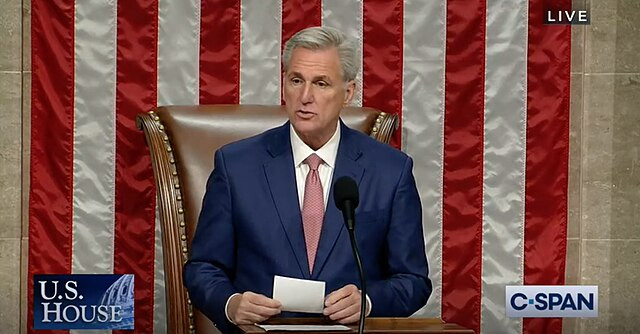In a political landscape often characterized by division and partisanship, the recent ousting of Kevin McCarthy from the House speakership has unveiled a series of behind-the-scenes bipartisan efforts aimed at preserving his position. These endeavors, while ultimately unsuccessful, shed light on the intricate dynamics of the House and the lengths to which members will go to broker deals across the aisle.
Centrist members of the House, in a last-ditch effort, attempted to craft a bipartisan power-sharing agreement that might have salvaged McCarthy's speakership. This initiative was spearheaded by the bipartisan Problem Solvers Caucus. The proposed arrangement would have seen a faction of Democrats voting to retain McCarthy as Speaker in exchange for a more influential role in House operations. Among the suggestions were equal representation for both parties on the influential Rules Committee and modifications to House rules to make it more challenging for a minority faction to remove a sitting speaker.
However, these negotiations, described by three anonymous insiders, were fraught with challenges. As the threat from a group of hard-right Republicans to remove McCarthy grew more imminent, and with the realization that a significant majority of Democrats might support such a move, the urgency of these talks intensified. A pivotal caucus meeting on the day of the vote saw Democrats in the group demanding a delay in the voting process to allow for further discussions. They also sought assurances from McCarthy of his willingness to genuinely collaborate with the other side of the aisle.
Yet, suspicions ran deep. Some Republicans believed that the Democrats were not genuinely interested in a deal. They speculated that the Democrats had already resolved to remove McCarthy, the GOP's top fundraiser, hoping that the ensuing turmoil would bolster their chances in the upcoming elections. This mistrust proved to be a significant obstacle, and in the end, the Democrats in the Problem Solvers Caucus sided with House Minority Leader Hakeem Jeffries, voting to oust McCarthy.
The aftermath of these events has left a palpable tension among members of the Problem Solvers Caucus. Discussions are underway about potential changes to the caucus's structure to prevent its disintegration. A meeting is scheduled for the coming week to chart a way forward.
Interestingly, the concept of rules reform, a central element of the failed negotiations, remains a topic of discussion. Jeffries has recently advocated for a "bipartisan coalition" to oversee the House, echoing the sentiments of the Problem Solvers' proposal. In a recent op-ed, he emphasized the need for the House to be restructured to promote consensus-based governance and to facilitate votes on bills enjoying robust bipartisan support.
As the dust settles on this political drama, the events surrounding McCarthy's ouster serve as a stark reminder of the complexities of House politics. They underscore the challenges of bipartisan collaboration in an era of deep-seated political divisions but also highlight the potential for compromise and the enduring spirit of those committed to finding common ground.




